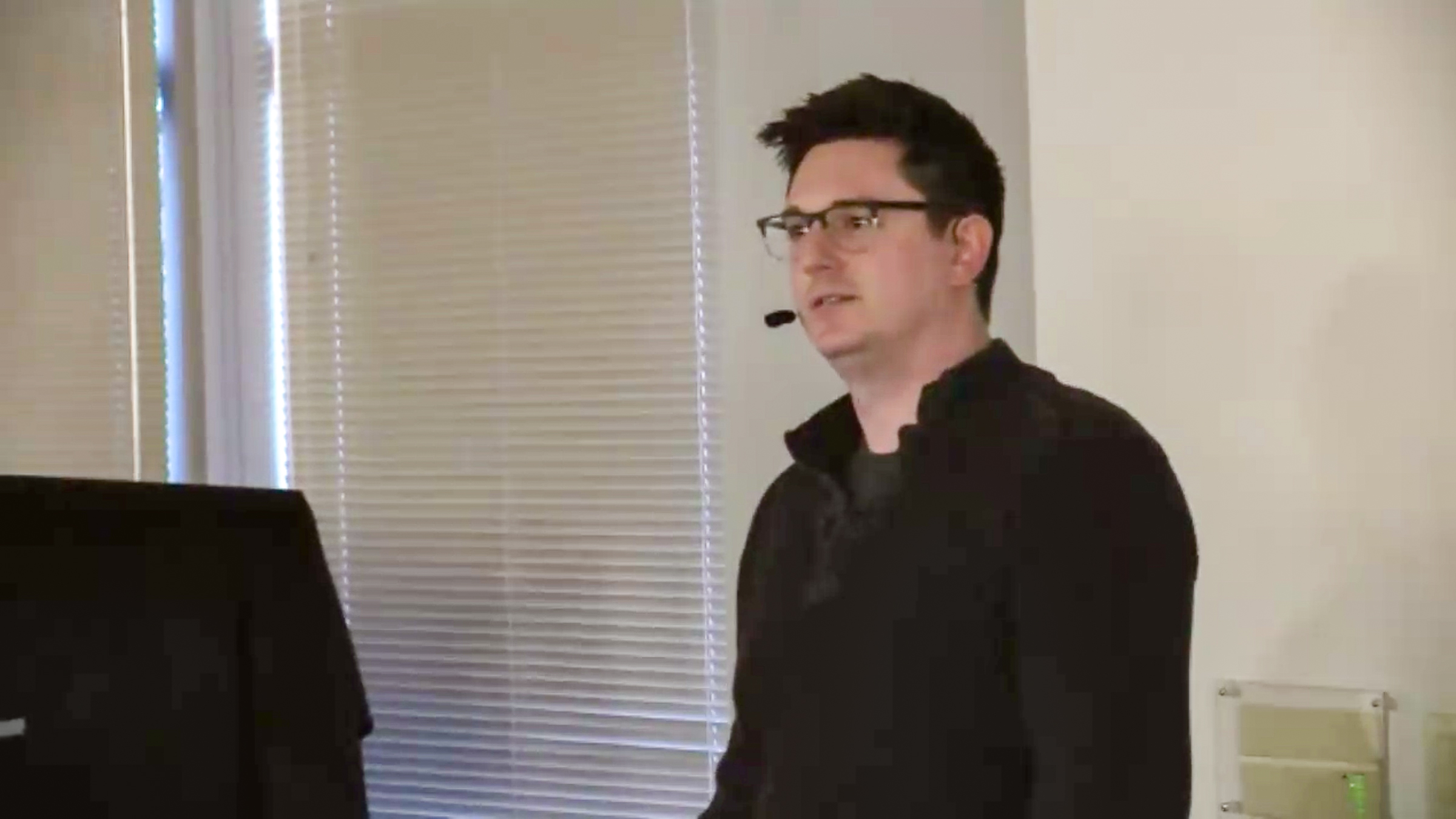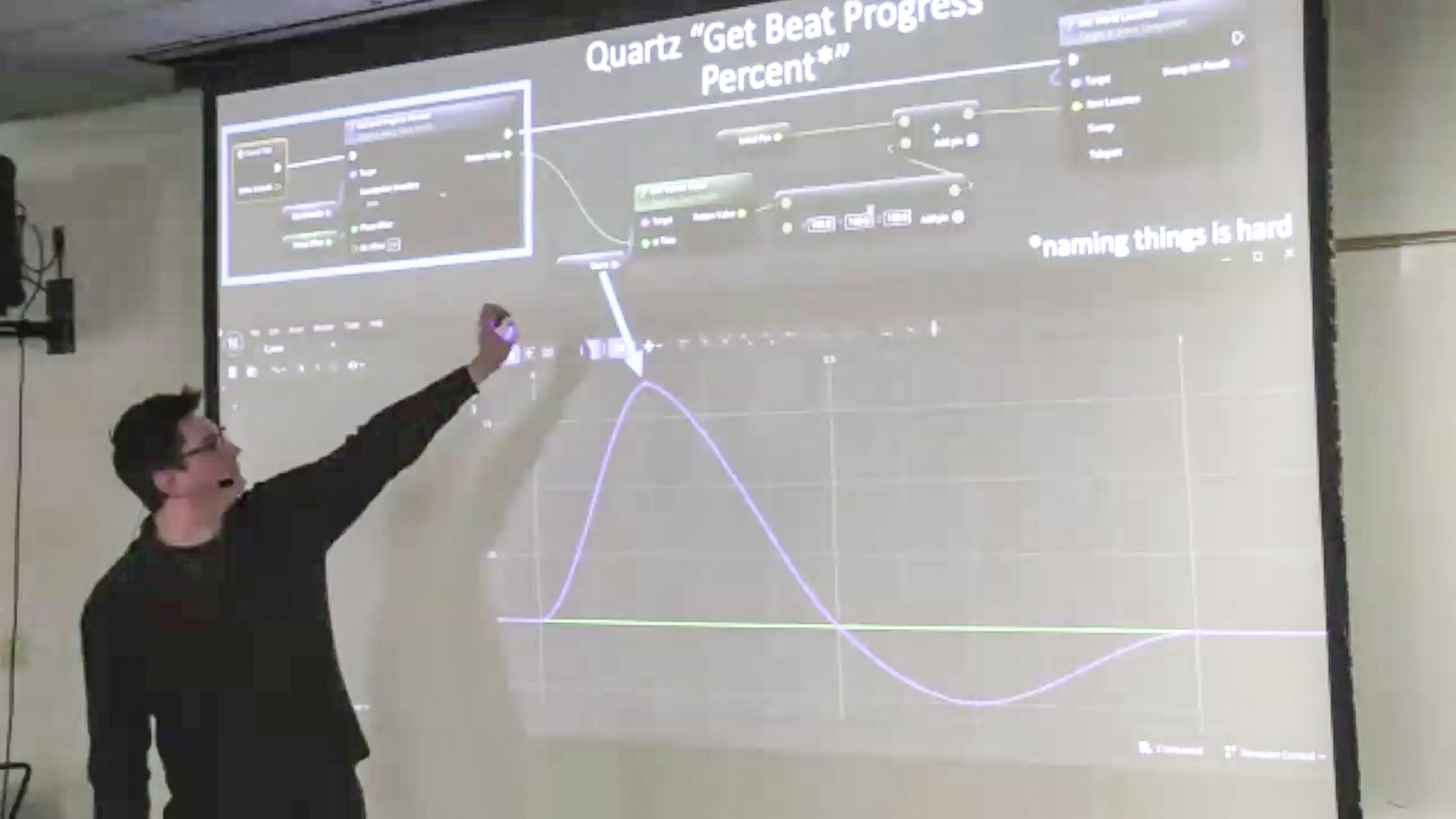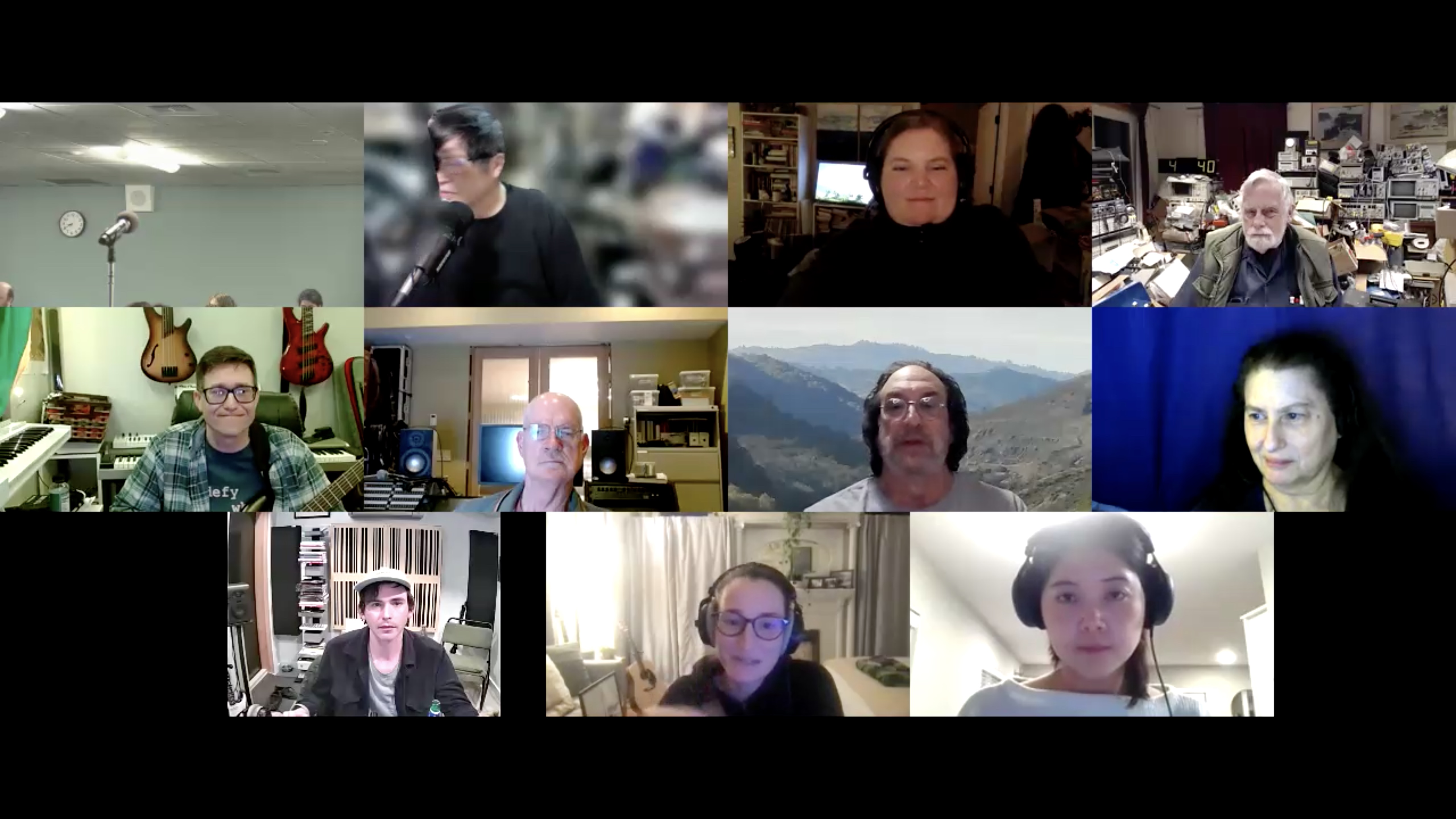
n.b. Chrome users need to refresh their browsers to ensure they have the latest content.
Hybrid Meeting on Zoom and in person at Digipen Institute of Technology, Redmond WA, April 3, 2024 7:30PM PDT(UTC -7)

n.b. Chrome users need to refresh their browsers to ensure they have the latest content.
Hybrid Meeting on Zoom and in person at Digipen Institute of Technology, Redmond WA, April 3, 2024 7:30PM PDT(UTC -7)

Our presenter Max Hayes begins his presentation at Digipen Institute of Technology. |

Max Hayes demonstrating the function of the Quartz editing software. |

A look at the Zoom grid during the presentation. |
|
Download or View PDF of Meeting Presentation Slides (without Video examples), 9MB PDF file
Powerpoint Meeting Presentation Slides with Video Examples - Very Large File (703.5Mb .pptx) Video Hosting Courtesy Dan Mortensen and Dansound Inc. Screenshots from meeting extracted from Zoom by Gary Louie, Secretary, PNW AES Section |
||
|
The AES PNW Section's March-April meeting presented Max Hayes of Epic Games discussing sound for games, specifically the Quartz subsystem of the Unreal Engine. The hybrid meeting was held live at the Digipen Institute of Technology (Redmond, WA) and on Zoom. PNW Chair Dan Mortensen began by announcing the next meeting (on the BSO with AES Fellow Shawn Murphy), The attendance count was 9+ AES members out of 24 on Zoom and 6 out of 24 onsite.
Lawrence Schwedler, PNW Treasurer and Digipen faculty, organized the meeting and introduced Max Hayes. Max started with a short Unreal Engine video showing a game weapon firing balls and hitting objects, with sounds. Then he showed a clip with some Quartz sound work. He explained what a Game Engine is: a collection of software systems working together to create a dynamic, user-driven experience. Max explained how Game Engines work, then focused on the sound software. He went through gameplay and sound design factors and how Quartz helps design a compelling soundtrack despite sound quantization problems by acting as a scheduler. Then, sound can help drive the visuals of gameplay. He showed several clips of examples, including Fortnite and some animations from the artist Deadmau5. Many audience members, especially Digipen students, showed a keen interest during the Q&A. Both onsite and Zoom participants all introduced themselves, and Zoom attendees were welcomed to chat online after the presentation. About Our Presenter:
Along the way Max has worked as a front-of-house mix engineer, freelance composer for independent films, and an instructor for both guitar performance and music production. Through these experiences he acquired a deep understanding of the creative and technical aspects of audio, which he now applies to his work at Epic Games. At Epic, Max contributes to core audio engine technologies in the Unreal Engine including caching systems, Ambisonics decoding, MetaSounds, DSP optimizations, and the Quartz scheduling system.
|